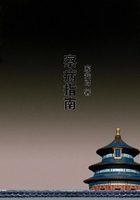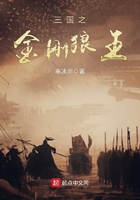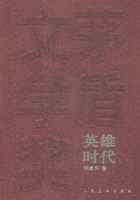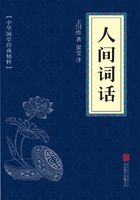Thinking the matter over fully, I felt obliged to decline the place. My heart was set on finishing the book which I had so long wished to publish,--my ``History of the Warfare of Science with Theology,''--and in order to cut myself off from other work and get some needed rest I sailed for Europe on October 3, 1885, but while engaged most delightfully in visits to Oxford, Cambridge, and various places on the Continent, I received by cable an offer which had also a very tempting side.
It was sent by my old friend Mr. Henry Sage of Ithaca, urged me to accept the nomination to Congress from that district, and assured me that the nomination was equivalent to an election. There were some reasons why such a position was attractive to me, but the more I thought of it the more it seemed to me that to discharge these duties properly would take me from other work to which I was pledged. Before deciding the question, however, I determined to consult two old friends who were then living in London hotels adjacent to my own. The first of these was my dear old instructor, with whom my relations had been of the kindest ever since my first year at Yale--President Porter.
On my laying the matter before him, he said, ``Accept by all means''; but as I showed him the reasons on both sides, he at last reluctantly agreed with me that probably it was best to send a declination.
The other person consulted was Mr. James Belden of Syracuse, afterward a member of Congress from the Onondaga district, a politician who had a most intimate knowledge of men and affairs in our State. We had been during a long period, political adversaries, but I had come to respect sundry qualities he had more lately exhibited, and therefore went to him as a practical man and laid the case before him. He expressed his great surprise that I should advise with him, my old political adversary, but he said, ``Since you do come, I will give you the very best advice I can.''
We then went over the case together, and I feel sure that he advised me as well as the oldest of my friends could have done, and with a shrewdness and foresight all his own.
One of his arguments ran somewhat as follows: ``To be successful in politics a man must really think of nothing else; it must be his first thought in the morning and his last at night; everything else must yield to it. Heretofore you have quietly gone on your way, sought nothing, and taken what has been freely tendered you in the interest of the party and of the public. I know the Elmira district, and you can have the nomination and the election without trouble; but the question is whether you could ever be happy in the sort of work which you must do in order to take a proper place in the House of Representatives.
First of all, you must give up everything else and devote yourself to that alone; and even then, when you have succeeded, you have only to look about you and see the men who have achieved success in that way, and who, after all, have found in it nothing but disappointment.''
In saying this he expressed the conclusion at which I had already arrived.
I cabled my absolute declination of the nomination, and was reproved by my friends for not availing myself of this opportunity to take part in political affairs, but have nevertheless always felt that my decision was wise.
To tell the truth, I never had, and never desired to have, any capacity for the rough-and-tumble of politics.
I greatly respect many of the men who have gifts of that sort, but have recognized the fact that my influence in and on politics must be of a different kind. I have indeed taken part in some stormy scenes in conventions, meetings, and legislatures, but always with regret. My true rle has been a more quiet one. My ambition, whether I have succeeded in it or not, has been to set young men in trains of fruitful thought, to bring mature men into the line of right reason, and to aid in devising and urging needed reforms, in developing and supporting wise policies, and in building up institutions which shall strengthen what is best in American life.
Early in 1891 I was asked by Mr. Sherman Rogers of Buffalo, one of the best and truest men in political life that I have ever known, to accompany him and certain other gentlemen to Washington, in order to present to Mr. Harrison, who had now become President of the United States, an argument for the extension of the civil-service rules. Accompanied by Mr. Theodore Roosevelt and Senator Cabot Lodge, our delegation reached the Executive Mansion at the time fixed by the President, and were received in a way which surprised me. Mr.
Harrison seemed, to say the least, not in good humor. He stood leaning on the corner of his desk, and he asked none of us to sit. All of us had voted for him, and had come to him in his own interest as well as in the interest of the country; but he seemed to like us none the better for all that. The first speech was made by Mr. Rogers. Dwelling on the disappointment of thoughtful Republicans throughout the country at the delay in redeeming pledges made by the Republican National Convention as to the extension of the civil service, and reiterated in the President's own speeches in the United States Senate, he in a playful way referred to the conduct of certain officials in Buffalo, when the President interrupted him, as it seemed to me at the time very brusquely and even rudely saying: ``Mr. Rogers, you have no right to impute evil motives to any man. The motives of these gentlemen to whom you refer are presumably as good as your own. An argument based upon such imputations cannot advance the cause you support in the slightest degree.'' Mr. Rogers was somewhat disconcerted for a moment, but, having resumed his speech, he presented, in a very dignified and convincing way, the remainder of his argument. He was followed by the other members from various States, giving different sides of the case, each showing the importance which Republicans in his own part of the country attributed to an extension of the civil-service rules.















